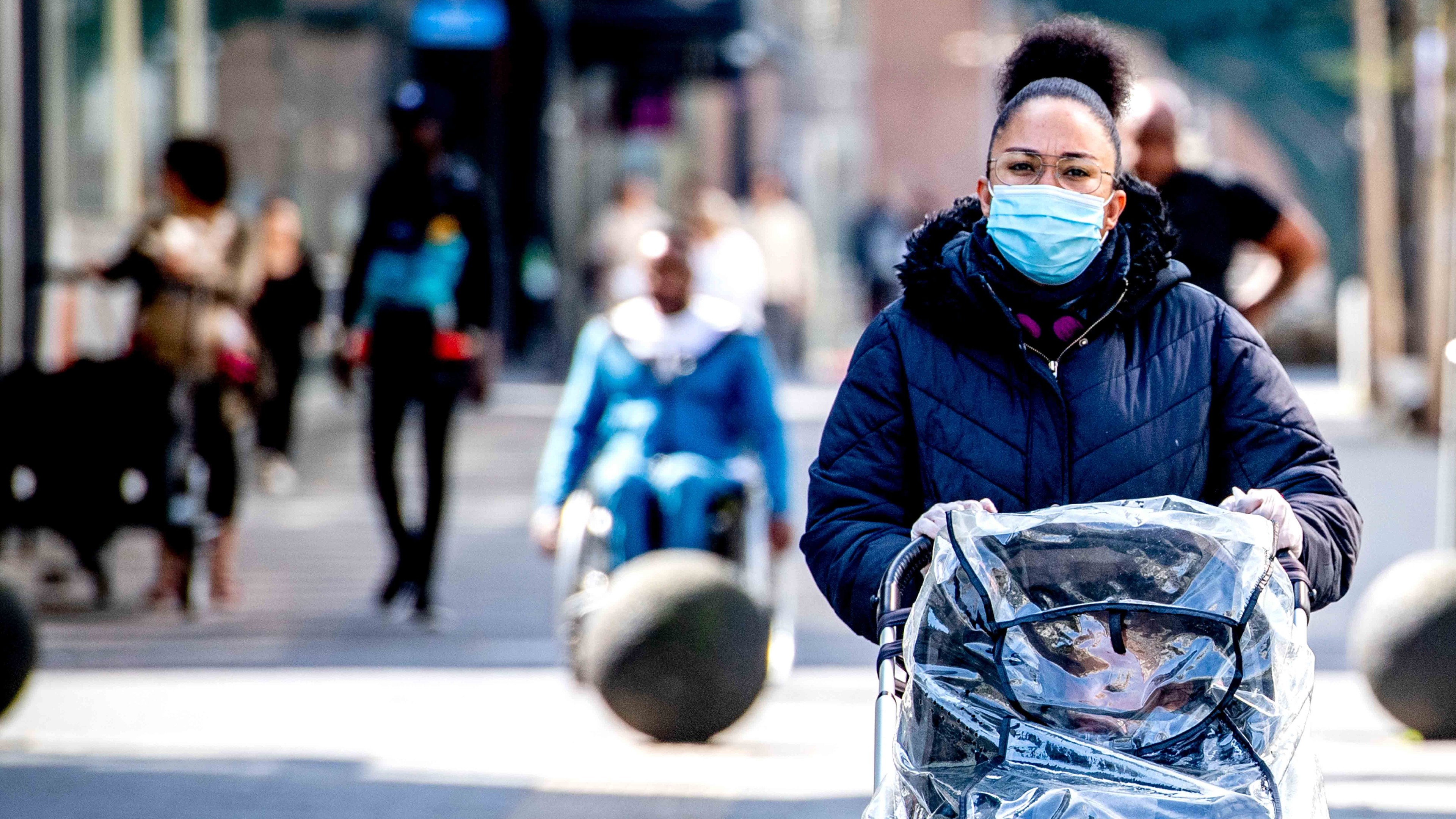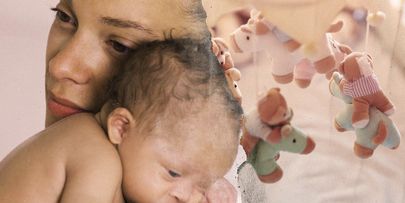COVID-19 Is Keeping Women From Having Kids
A new survey by SoFi and Modern Fertility finds that the virus has put family planning on pause.

Jokes that stay-at-home orders would deliver a generation of coronavirus babies nine months from now may, in fact, turn out to be laughable. It seems the COVID-19 pandemic is having the opposite effect on family planning. Though it's not yet clear how the virus impacts pregnancy and pregnant woman, a new survey shows that it is certainly impacting people's perspective on getting pregnant.
The results are remarkable: One-third of respondents said that COVID-19 has changed their fertility plans entirely. Nearly half said that they are delaying having children because they’re anxious about access to prenatal care right now. Forty-one percent are delaying having kids for financial reasons related to the COVID-19 outbreak, including fears that one or both parents could be laid off or furloughed due to the virus' economic toll. And more than one in four respondents (27 percent) are avoiding pregnancy because they’re worried about getting COVID-19 themselves.
Nearly half of respondents are delaying having children because they are worried about pre-natal care during COVID-19.
The survey, conducted by SoFi, a personal finance company, in conjunction with Modern Fertility, a reproductive health company, was initially conducted in September and focused on the state of fertility and money. In light of the outbreak, researchers went back to respondents to ask how COVID-19 is influencing their plans to conceive; results were released yesterday, the start of National Infertility Awareness Week. The week is usually spent amplifying the conversation around infertility and erasing the stigma and taboo that surrounds it, but this year’s NIAW has, like most other things, shifted focus. In the wake of COVID-19, NIAW is vowing to support those struggling to build a family even more than ever before.
NIAW couldn't come at a more uncertain, but necessary time. Sixty-one percent of women who took the SoFi/Modern Fertility survey said that, due to the coronavirus, they are more worried and anxious about their ability to have kids. This reported increase in stress might further impact fertility goals even after the virus wanes: Many prior studies have corroborated the link between infertility and stress. On average, women struggling with infertility report elevated levels of stress and anxiety
Financial concerns are one source of that stress. The survey found that the biggest delay in a couple's fertility timeline is often money. The hefty price tag of fertility treatments is a major setback for many. The average cost for egg freezing is $17,000; a single IVF cycle is about $23,000. With more than 22 million Americans filing for unemployment in the past four weeks, financial hurdles will surely become an even bigger issue many families will face.
Accessibility to care also plays a role. Of the respondents who said they’re delaying fertility treatments or family planning decisions due to COVID-19, 18 percent listed fertility clinics pausing treatments—they are not deemed "essential" at the moment—as a major factor in that decision (or the factor forcing it).
COVID-19 is impacting the way we work, live our lives, and now, when (and if) we start family. For many couples, the virus has completely upended plans or treatments years in the making. But hope is on the horizon: Many facilities are increasing telehealth services, and the coronavirus curve seems to be flattening. With progress slowly but surely coming, the goal of staring a family, though delayed, feels a little bit closer than it did even a week ago.
Stay In The Know
Get exclusive access to fashion and beauty trends, hot-off-the-press celebrity news, and more.
For more stories like this, including celebrity news, beauty and fashion advice, savvy political commentary, and fascinating features, sign up for the Marie Claire newsletter.
Related Stories



-
 James Middleton Shares Why He Was "Breathless and Flustered" During Meeting With Queen Elizabeth
James Middleton Shares Why He Was "Breathless and Flustered" During Meeting With Queen Elizabeth"I heard a snort of laughter and looked past the Queen to see everyone in the room stifling their giggles."
By Kristin Contino
-
 This Modern Princess Will Break a 600-Year-Old Tradition When She Takes the Throne
This Modern Princess Will Break a 600-Year-Old Tradition When She Takes the ThronePrincess Ingrid Alexandra of Norway will follow in a long-ago ruler's footsteps.
By Kristin Contino
-
 Hailey Bieber's "Favorite Jacket" Is Actually One She Designed
Hailey Bieber's "Favorite Jacket" Is Actually One She DesignedIt's a piece for husband Justin Bieber's new brand.
By Halie LeSavage
-
 Senator Klobuchar: "Early Detection Saves Lives. It Saved Mine"
Senator Klobuchar: "Early Detection Saves Lives. It Saved Mine"Senator and breast cancer survivor Amy Klobuchar is encouraging women not to put off preventative care any longer.
By Senator Amy Klobuchar
-
 I'm an Egg Donor. Why Was It So Difficult for Me to Tell People That?
I'm an Egg Donor. Why Was It So Difficult for Me to Tell People That?Much like abortion, surrogacy, and IVF, becoming an egg donor was a reproductive choice that felt unfit for society’s standards of womanhood.
By Lauryn Chamberlain
-
 The 20 Best Probiotics to Keep Your Gut in Check
The 20 Best Probiotics to Keep Your Gut in CheckGut health = wealth.
By Julia Marzovilla
-
 Simone Biles Is Out of the Team Final at the Tokyo Olympics
Simone Biles Is Out of the Team Final at the Tokyo OlympicsShe withdrew from the event due to a medical issue, according to USA Gymnastics.
By Rachel Epstein
-
 The Truth About Thigh Gaps
The Truth About Thigh GapsWe're going to need you to stop right there.
By Kenny Thapoung
-
 The High Price of Living With Chronic Pain
The High Price of Living With Chronic PainThree women open up about how their conditions impact their bodies—and their wallets.
By Alice Oglethorpe
-
 I Used to Imagine Murdering the Men I Dated
I Used to Imagine Murdering the Men I DatedFalling in love helped me finally figure out why.
By Jessica Amento
-
 60 Workout Apps for Women Who Want Results (Without a Gym Membership)
60 Workout Apps for Women Who Want Results (Without a Gym Membership)Buying Guide Easy fitness plans you can follow without fear of judgment.
By Bianca Rodriguez